Dedicated to Understanding Difficult Questions About Population Health
Population health seeks to understand factors that influence the overall well-being of large groups over time. It uses large cohorts of subjects to address questions related to aging, rare disease, vaccine response, nutrition, and more. Many factors determine population health, such as genetics, environmental factors, gender, and race, making it key in the development of precision medicine. The goal of population health research is to identify macro-scale trends and develop novel therapies to improve the health of these populations.
The Limitations of Genomics-only Studies
Metabolomics as a Multi-omics Solution for Population Health
Metabolon has also validated the use of alternative sampling methods for metabolomics analysis to support large-scale metabolomics research needs. For example, 150 µl of blood product is sufficient to run untargeted metabolomics on our Global Discovery Panel, and Metabolon-validated dried blood spot (DBS) cards allow only a few drops of blood from a finger to be tested for metabolomic changes. Additionally, through our collaboration with DNA Genotek, we found for the first time that the OMNImet®•GUT device can be used for room temperature collection of stool samples for metabolomics studies. This dramatically expands the accessibility of metabolomics for gut microbiome studies. These novel sampling methods for metabolomics research provide a low-cost and effective alternative for population health studies.
Driving Discovery with Collective Insight
At Metabolon, we know that deep metabolic phenotyping of large cohort programs will confidently identify fundamental factors in the development of major diseases, lead to the discovery of new biomarkers and reveal novel targets for clinical intervention. With our industry-leading library of over 5400 metabolites, Metabolon’s technology has the broadest coverage and capability to see potential biomarkers in your data. The compounds identified through metabolomic profiling represent a range of intermediate metabolic pathways that may serve as biomarkers of exposure, susceptibility, or disease. Our Population Health team works with leading government, academic, and commercial researchers around the world to establish Metabolon as the preferred provider of metabolomics data for these studies.
Cohorts Using Metabolon’s Data
See how Metabolon can advance your path to preclinical and clinical insights
Metabolomics Panels for Population Health
Global Discovery Panel
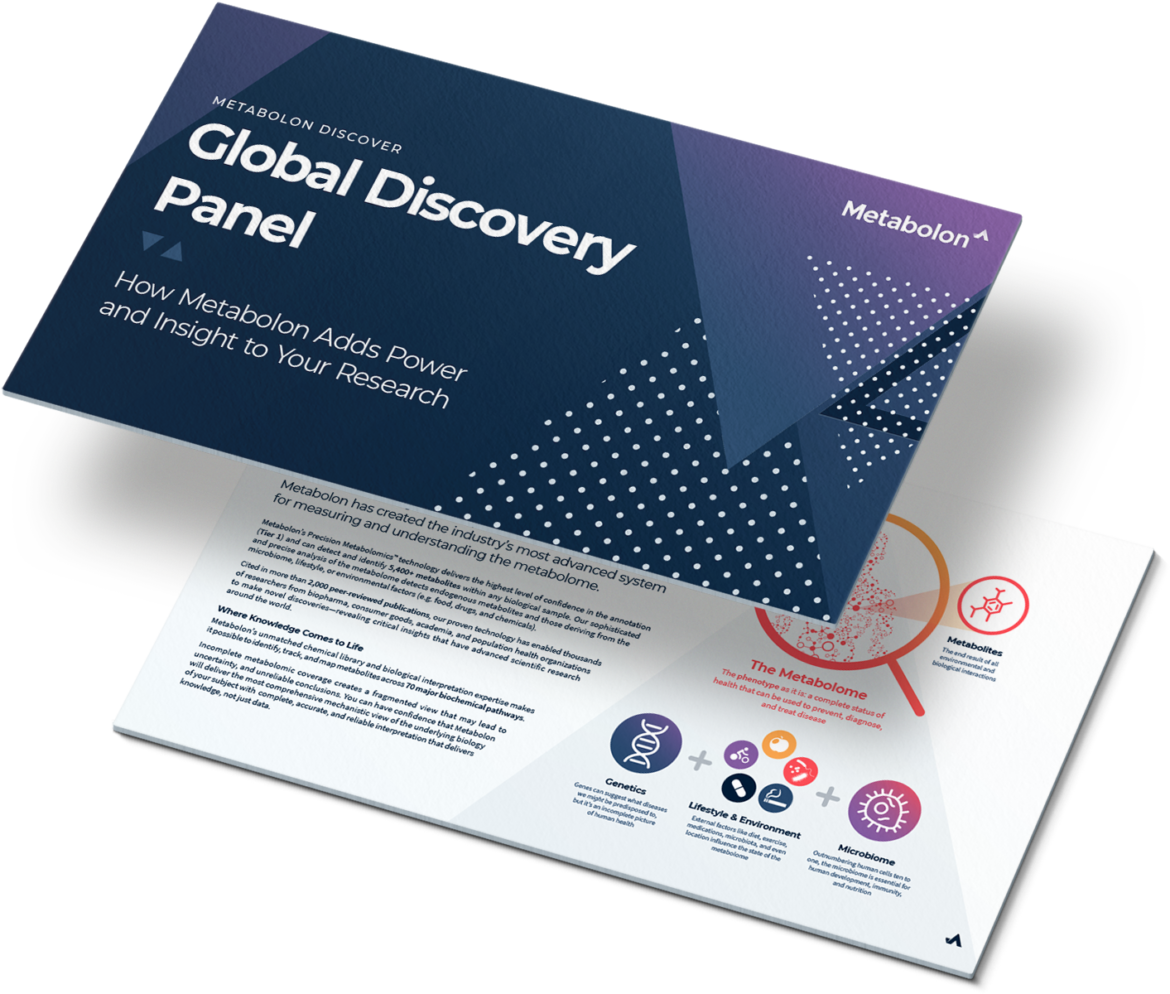

Complex Lipids Targeted Panel
Short Chain Fatty Acids Targeted Panel
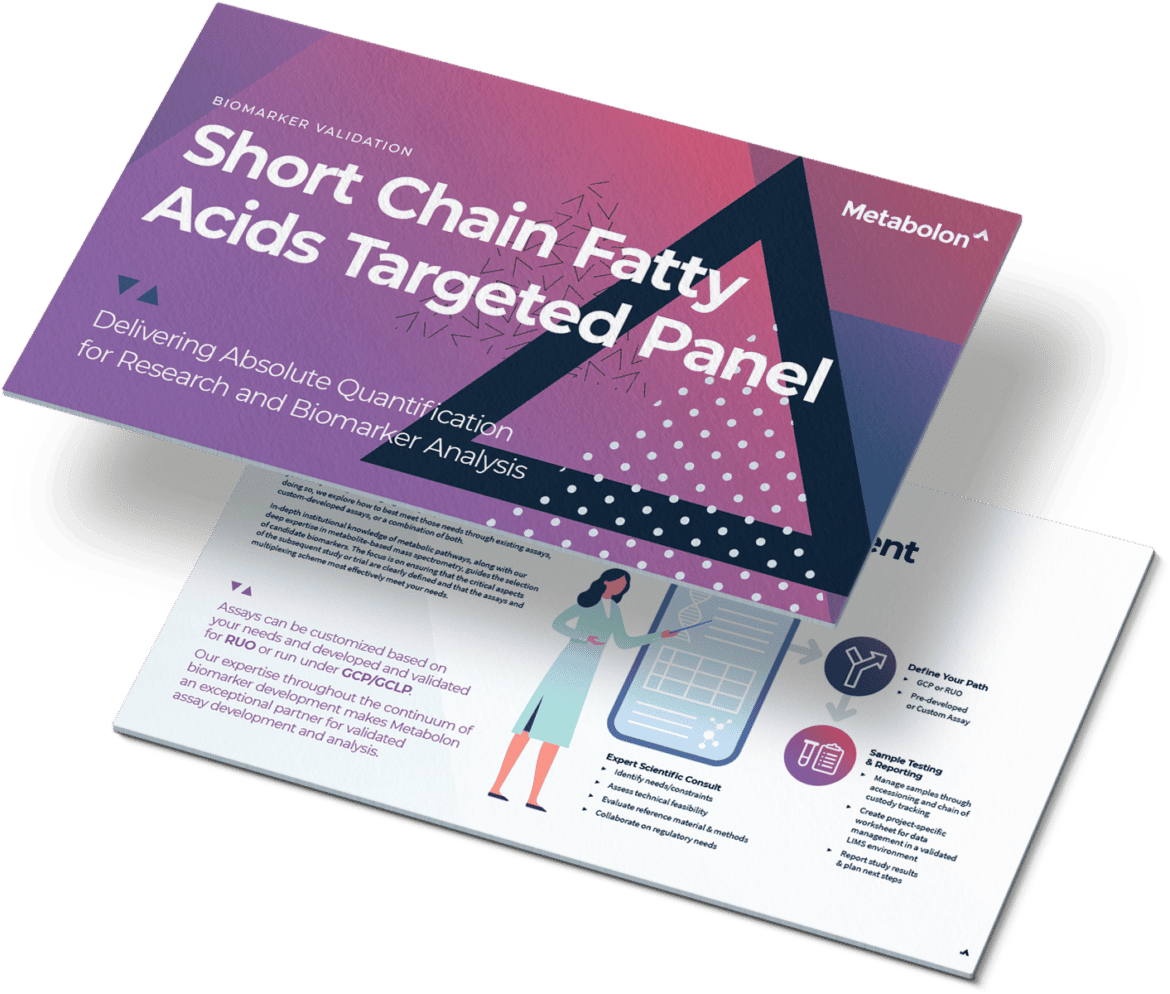
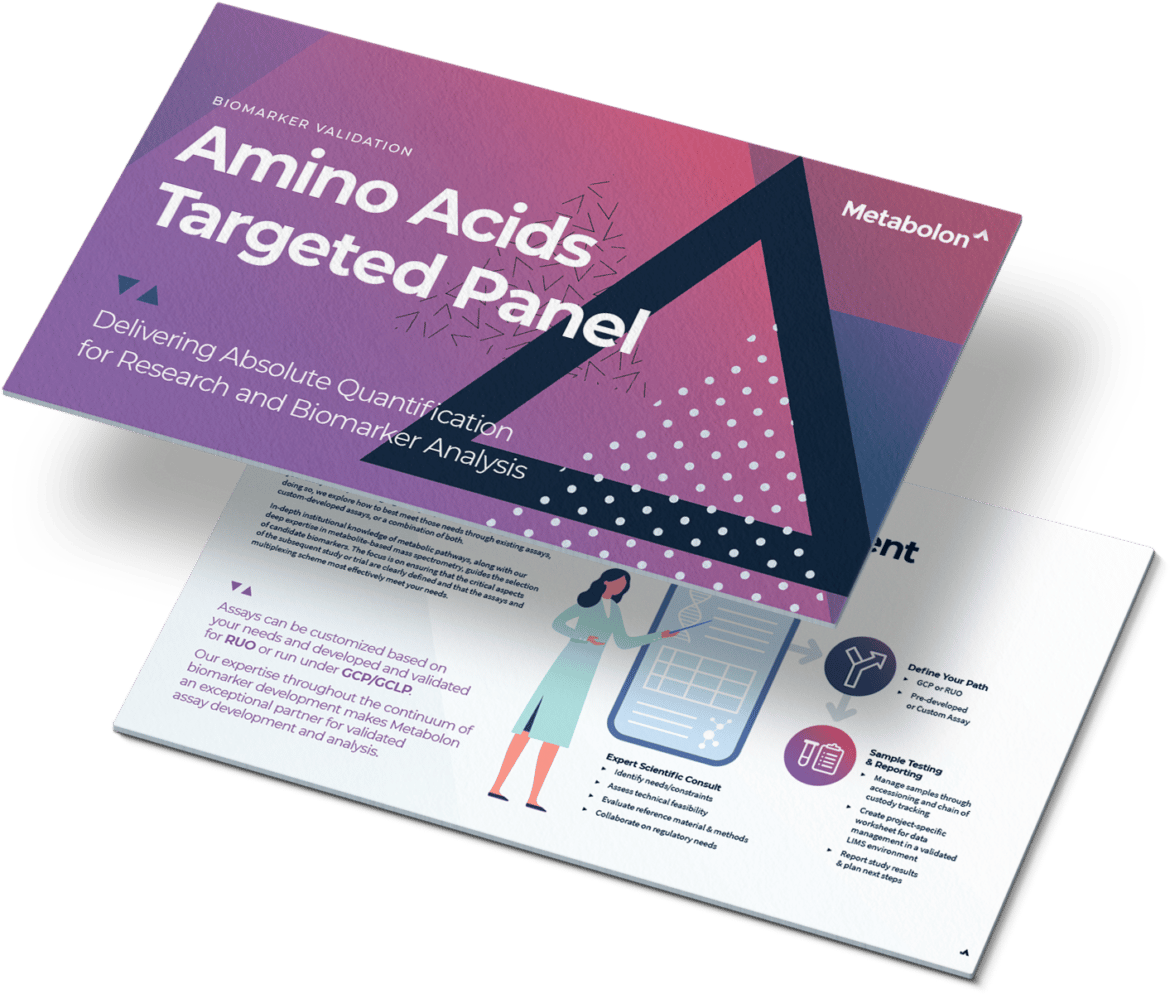
Amino Acids Targeted Panel
Bile Acids Targeted Panel
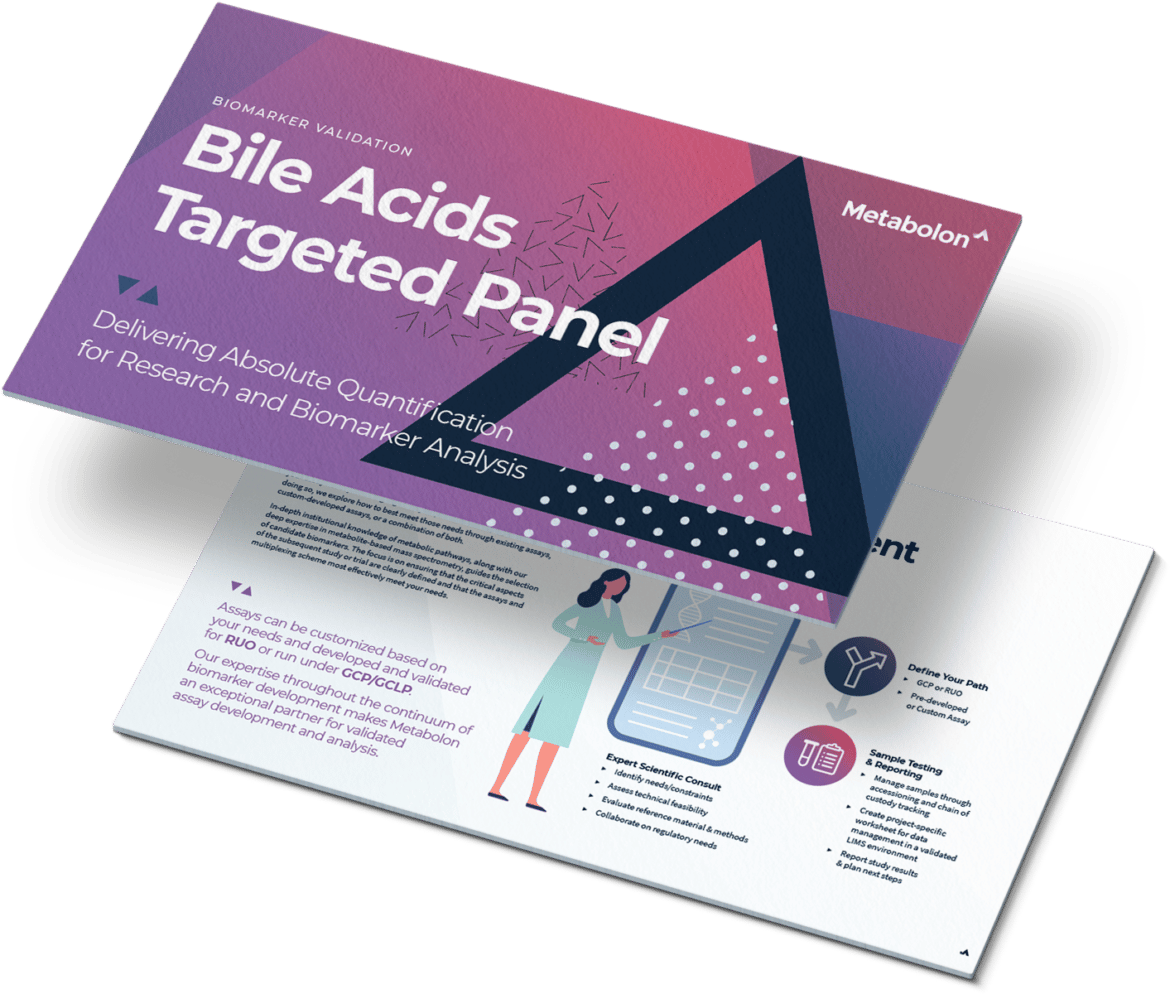
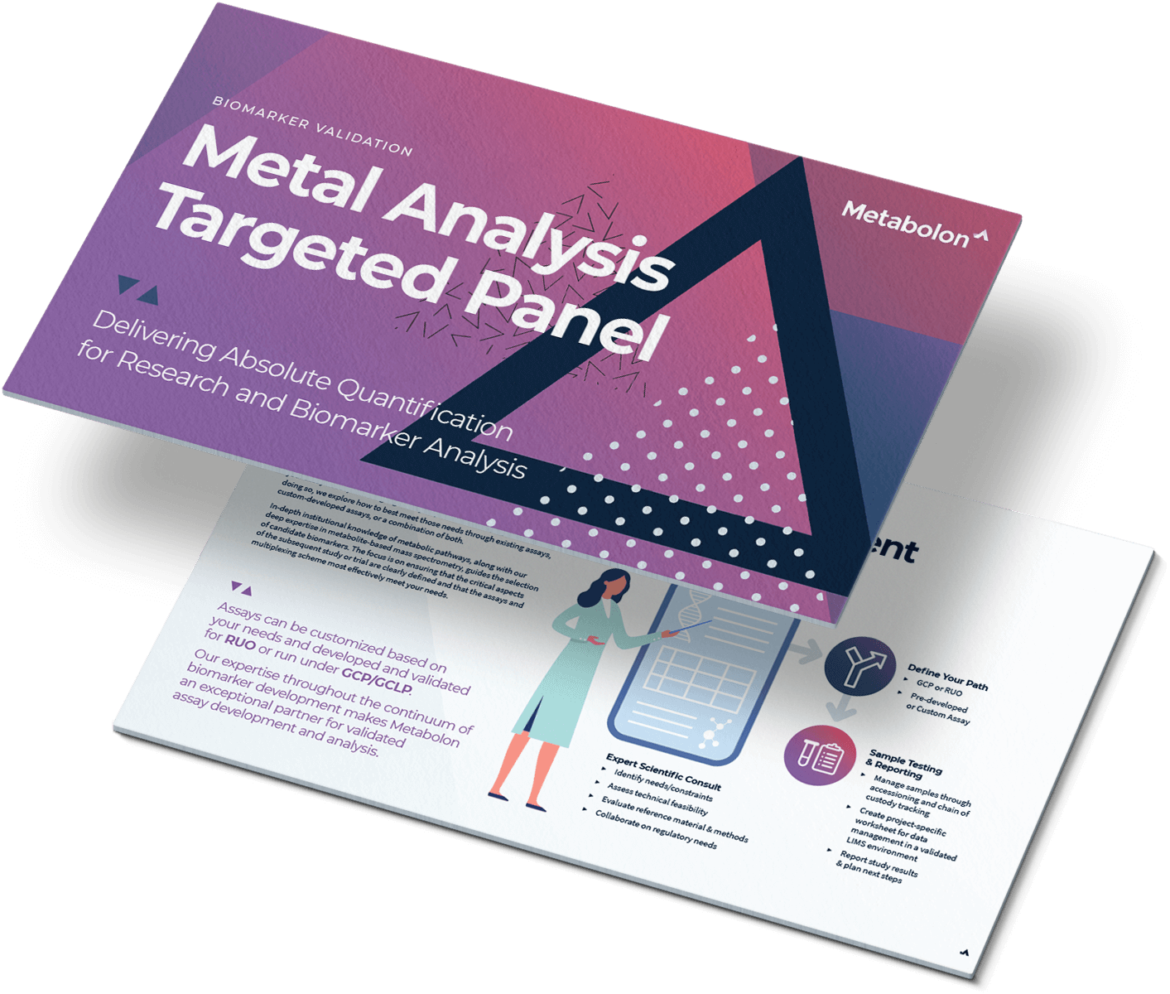
Metal Analysis Targeted Panel
Metabolon in Action
Beyond Service Provider to Solution Driver
Metabolon to Power Metabolomic Enriched Population Health Studies at FinnGen
Q&A: Approach to Frailty Population Health Study with Brent Richards, M.D., M.Sc., Faculty of Medicine at McGill University
Metabolite Biomarkers for Type 2 Diabetes (T2D)
This study associated T2D etiopathogenesis with metabolites that could be targeted for novel therapies. These metabolites can also diagnose the correct T2D subtype to improve care and outcomes for individuals with T2D. Monitoring these metabolites in patients with T2D via targeted metabolomic profiling may inform the efficacy of a therapeutic intervention.
Interested in Further Studies?
Why Metabolon?
Once you see the full value of metabolomics, the only remaining question is who does it best? While many laboratories have metabolite profiling or analytical chemistry capabilities, comprehensive metabolomics technologies are extremely rare. Accurate, unbiased metabolite identification across the entire metabolome introduces signal-to-noise challenges that very few labs are equipped to handle. Also, translating massive quantities of data into actionable information is slow, if not impossible, for most because proper interpretation takes two things that are in short supply: experience and a comprehensive database.
Only Metabolon has all four core metabolomics capabilities
Coverage
Ability to interrogate thousands of metabolites across diverse biochemical space, revealing new insights and opportunities
Comparability
Ability to integrate the data from different studies into the same dataset, in different geographies, among different patients over time
Competency
Ability to inform on proper study design, generate high‐quality data, derive biological insights, and make actionable recommendations
Capacity
Ability to process hundreds of thousands of samples quickly and cost‐efficiently to service rapidly growing demand
Partner with Metabolon to access:
A library of 5,400+ known metabolites, 2,000 in human plasma, all referenced in the context of biochemical pathways
- That’s 5x the metabolites of the closest competitor
Unparalleled depth and breadth of experience analyzing and interpreting metabolomic data to find meaningful results
- 10,000+ projects with hundreds of clients
- 2,000+ publications covering 500 diseases, including numerous peer-reviewed journals such as Cell, Nature and Science
- Nearly 40 PhDs in data science, molecular biology, and biochemistry
Using our robust platform and visualization tools, our experts are uniquely able to tell you more about your molecule and develop assay panels to help you zero in on the results you need.
Related Population Health Metabolomics Resources
Contact Us
Talk with an expert
Request a quote for our services, get more information on sample types and handling procedures, request a letter of support, or submit a question about how metabolomics can advance your research.
Corporate Headquarters
617 Davis Drive, Suite 100
Morrisville, NC 27560
Mailing Address:
P.O. Box 110407
Research Triangle Park, NC 27709

